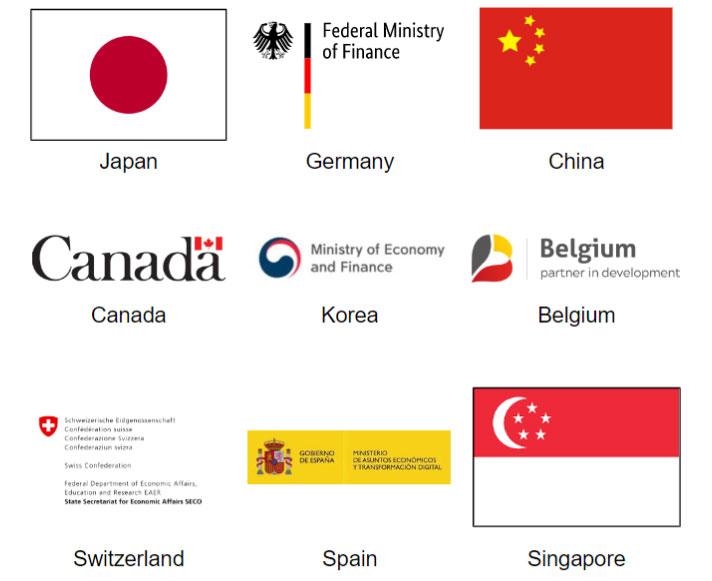COVID-19 Crisis Capacity Development Initiative
September 24, 2021
The IMF's COVID-19 Crisis Capacity Development Initiative (CCCDI) supports countries as they steer their economies through the crisis and prepare for an inclusive recovery. It complements the IMF’s emergency lending programs by improving capacity in critical economic institutions and delivers hands-on capacity development.
Thanks to the generous support of our partners, the CCCDI supports low income and emerging market countries where IMF experts are working in close consultation with policymakers to design tailored programs. The IMF’s targeted and timely capacity development support adapts to evolving priorities on the ground and seeks to ensure progress toward the SDGs.
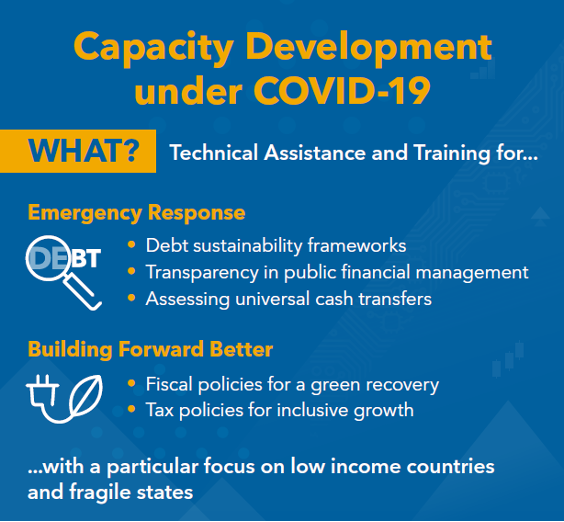
The CCCDI responds to urgent capacity development needs in core and emerging areas of IMF expertise. These remain of critical importance as countries strive for a strong and sustained economic recovery. In addressing urgent needs, the work of the Initiative is also linked to important global themes, notably: tax policy and inclusive growth; supporting a green recovery; digitalization and financial access; debt management and revenue mobilization; and transparency and accountability in emergency response.
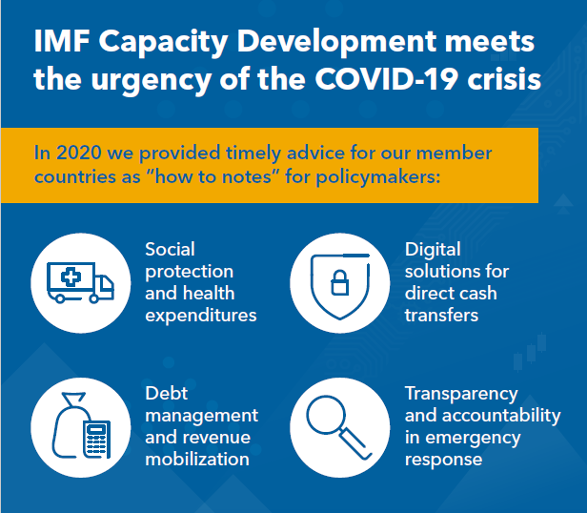
The IMF’s support aims to be flexible, innovative, and effective. The Initiative is agile and adapts to countries’ shifting priorities. This will also be an opportunity to continue to make positive changes for citizens through crosscutting reforms like tackling inequality, climate change, and the growing digital divide. Delivery draws on the IMF’s strengthened virtual delivery platforms, including an expanded online learning program.
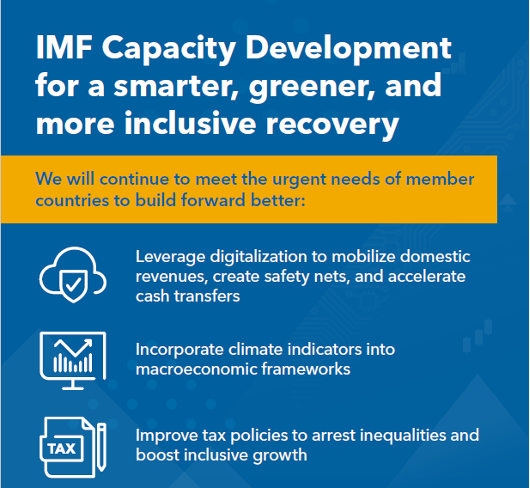
In support of these capacity development needs, implementation under the CCCDI is underway, and the scope of the work program was extended to address critical needs. Funds have been allocated to about 40 capacity development activities. Highlights include:
- Strengthening institutions in fragile states during the pandemic: capacity development delivery under CCCDI advanced in several fragile states. AFRITAC West recruited a tax advisor, financed by CCCDI, who worked with the Malian tax administration and delivered in-person technical assistance to Burkina Faso to support a tax audit. AFRITAC Central supported the Central African Republic on valuation and cargo reporting. In South Sudan, the IMF continued to assist the National Revenue Authority to reengineer business processes and customs reform. Going forward, the IMF will support Sierra Leone on benefit incidence analysis in healthcare and extend training on wage bill practices.
- Several countries, including fragile states, benefited from CD on digitalization, a priority for many countries given the disruptions during the pandemic: METAC supported the Libya customs administration with an assessment of their information technology systems. The IMF also supported the Cameroon tax administration on IT architecture design and developing a data management strategy. Technical assistance on digitalization supported Togo and Niger to strengthen revenue operations and administration. The Monetary and Capital Markets Department together with AFRITAC East convened a regional conference on central bank digital currencies (CBDCs) and crypto assets. CARTAC held a regional conference on CBDC in the Caribbean region. Additional technical assistance on CBDC was delivered to Egypt, Jordan, Haiti, and Honduras.
- Progress has been made in upgrading the IMF’s capacity development toolkit in transformational areas, notably supporting a green recovery and addressing deepening inequalities: On climate change, a second pilot Climate Macroeconomic Assessment Program (CMAP) was conducted in Madagascar. Climate policy scenarios are being integrated into the Financial Sector Assessment Program (FSAP) in Mexico. IMF staff are studying how climate change and demographic developments affect macroeconomic outcomes including debt management. On inequality, IMF staff have analyzed the distributional impact of the COVID-19 pandemic on the poor including increased school dropouts in many developing countries. The IMF has also designed fiscal policy tools to help address Income inequality and poverty in Namibia.
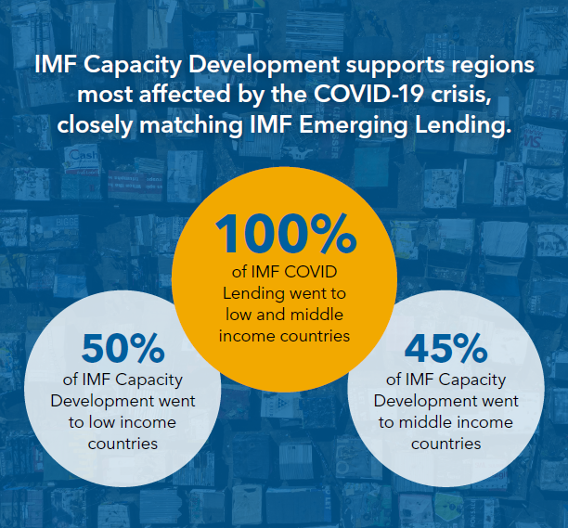
Financial support from CCCDI partners totals almost $40 million. The IMF continues to reach out to potential partners and looks forward to welcoming new partners.
Partners
